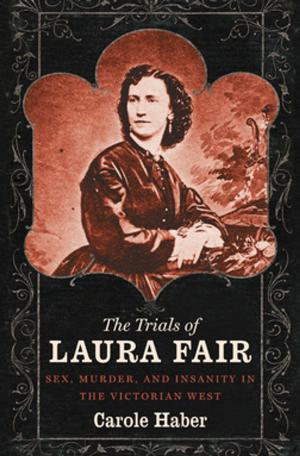Honor Thy Gods
Popular Religion in Greek Tragedy
Fiction & Literature, Literary Theory & Criticism, Ancient & Classical, Nonfiction, History, Ancient History, Greece| Author: | Jon D. Mikalson | ISBN: | 9781469617183 |
| Publisher: | The University of North Carolina Press | Publication: | March 19, 2014 |
| Imprint: | The University of North Carolina Press | Language: | English |
| Author: | Jon D. Mikalson |
| ISBN: | 9781469617183 |
| Publisher: | The University of North Carolina Press |
| Publication: | March 19, 2014 |
| Imprint: | The University of North Carolina Press |
| Language: | English |
In Honor Thy Gods Jon Mikalson uses the tragedies of Aeschylus, Sophocles, and Euripides to explore popular religious beliefs and practices of Athenians in the fifth and fourth centuries B.C. and examines how these playwrights portrayed, manipulated, and otherwise represented popular religion in their plays. He discusses the central role of honor in ancient Athenian piety and shows that the values of popular piety are not only reflected but also reaffirmed in tragedies.
Mikalson begins by examining what tragic characters and choruses have to say about the nature of the gods and their intervention in human affairs. Then, by tracing the fortunes of diverse characters -- among them Creon and Antigone, Ajax and Odysseus, Hippolytus, Pentheus, and even Athens and Troy -- he shows that in tragedy those who violate or challenge contemporary popular religious beliefs suffer, while those who support these beliefs are rewarded.
The beliefs considered in Mikalson's analysis include Athenians' views on matters regarding asylum, the roles of guests and hosts, oaths, the various forms of divination, health and healing, sacrifice, pollution, the religious responsibilities of parents, children, and citizens, homicide, the dead, and the afterlife. After summarizing the vairous forms of piety and impiety related to these beliefs found in the tragedies, Mikalson isolates "honoring the gods" as the fundamental concept of Greek piety. He concludes by describing the different relationships of the three tragedians to the religion of their time and their audience, arguing that the tragedies of Euripides most consistently support the values of popular religion.
In Honor Thy Gods Jon Mikalson uses the tragedies of Aeschylus, Sophocles, and Euripides to explore popular religious beliefs and practices of Athenians in the fifth and fourth centuries B.C. and examines how these playwrights portrayed, manipulated, and otherwise represented popular religion in their plays. He discusses the central role of honor in ancient Athenian piety and shows that the values of popular piety are not only reflected but also reaffirmed in tragedies.
Mikalson begins by examining what tragic characters and choruses have to say about the nature of the gods and their intervention in human affairs. Then, by tracing the fortunes of diverse characters -- among them Creon and Antigone, Ajax and Odysseus, Hippolytus, Pentheus, and even Athens and Troy -- he shows that in tragedy those who violate or challenge contemporary popular religious beliefs suffer, while those who support these beliefs are rewarded.
The beliefs considered in Mikalson's analysis include Athenians' views on matters regarding asylum, the roles of guests and hosts, oaths, the various forms of divination, health and healing, sacrifice, pollution, the religious responsibilities of parents, children, and citizens, homicide, the dead, and the afterlife. After summarizing the vairous forms of piety and impiety related to these beliefs found in the tragedies, Mikalson isolates "honoring the gods" as the fundamental concept of Greek piety. He concludes by describing the different relationships of the three tragedians to the religion of their time and their audience, arguing that the tragedies of Euripides most consistently support the values of popular religion.















